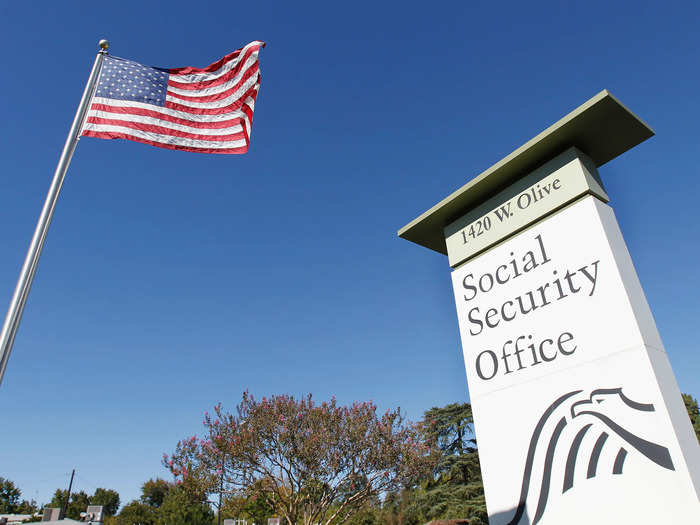- Home
- slideshows
- miscellaneous
- 8 steps to take if you think you'll be laid off or furloughed so you can have peace of mind if the unexpected happens
8 steps to take if you think you'll be laid off or furloughed so you can have peace of mind if the unexpected happens
The first thing you should do if you are laid off or furloughed is make sure you know how to contact your HR department for any follow up questions or documentation you may need from the company.

If you are laid off or furloughed in person, by telephone, or video video conference, and can ask questions, ask for your company's Federal Employer Identification Number (FEIN).

Some states require this for filling out unemployment claims, so it's handy to have.
A Federal Tax Identification Number is the unique nine-digit number assigned by the IRS to business operating in the US. You can also locate this number on a W-2 form for your most recent employer, or by calling your employer's HR department.
Next, visit your state's unemployment website right away.

Laid-off or furloughed workers should immediately file for unemployment through their state. Here is the government website to help you find your state's unemployment department, which has all the specific directions.
It's important not to wait, says Steven Auerbach, CEO of Alegeus, a consumer directed healthcare technology company.
Because of the pandemic, the government has expanded unemployment benefits under the newly passed Coronavirus Aid, Relief and Economic Security (CARES) Act, to provide an additional $600 per person per week through July.
Once you know what your state requires, prepare any necessary documents or information.

Documentation and information varies by state, but most states usually require a person to submit their:
- Social Security Number
- Driver's license number
- Mailing address
- Your phone number
- Your employer's name, address, and Federal Employer Identification (FEIN number), which you can get from your employer.
- Many states allow direct deposit of unemployment checks, so have your bank account number and routing number handy. You can get this from a check you have from your active bank account, or can call your bank.
Ask your former employer about health insurance and COBRA.

Find out how your long healthcare is covered by your employer. Is it through the end of the month? Longer? You'll want to find out. That way, you know when you're eligible to enroll in COBRA.
What is COBRA? COBRA is a health insurance program that allows eligible employees and their dependents the continued benefits of health insurance coverage when an employee loses their job or experiences a reduction of work hours.
If you enroll in COBRA, you will pay a monthly premium to receive the same health insurance their employer previously subsidized, Auerbach explained.
"There's a good possibility that COBRA premiums may be subsidized by the federal government in a forthcoming stimulus bill, but so far that has yet to occur," he added.
Ask about using your HSA account for out-of-pocket healthcare expenses.

If you had an HSA account, or a tax-advantaged health savings account, you can still use those funds for qualified, out-of-pocket healthcare expenses at any time. If you continue to receive health insurance from your employer or are enrolled in COBRA, you can continue to use HSA funds for co-pays and prescriptions.
"A provision in the recent CARES Act even makes over-the-counter medicine HSA-eligible without a prescription," Auerbach said.
If you're laid off, get contact information and any other information regarding your 401(k) or other retirement fund from your employer.

"Once you secure new employment, if your employer offers a 401(k), you can typically consolidate the old with the new. Separately, you have the option to roll your 401(k) funds over to an individual retirement account (IRA)," Auerbach said.
It's important you have the contact information from your former employer's retirement fund manager so you can roll over your 401(k) or other fund to your next employer.
If you have no other choice but to withdraw from your retirement funds, know the new CARES Act updates.

While most financial advisors would strongly recommend against withdrawing from your retirement fund, if you have no other choice but to dip into it before you're retired, there are some new updates.
The CARES Act— which provides economic relief to Americans through new, temporary laws regarding unemployment benefits, retirement funds, and more — reduces the penalty and/or waives the penalty for employers withdrawing from their employer-sponsored retirement funds.
The CARES Act waives the 10% tax penalty on withdrawals up to $100,000 from a retirement plan for an individual who meets the following criteria, according to Andreski:
- Is diagnosed with COVID-19;
- Whose spouse or dependent is diagnosed with COVID-19;
- Experiences adverse financial consequences as a result of:
- Is being quarantined, furloughed, laid off, having hours reduced
- Is unable to work due to lack of childcare due to COVID-19
- Is closing or reducing hours of a business owned or operated by an individual due to COVID-19
"Additionally, individuals will have the option to pay tax on the income from the distribution over a 3-year period, or repay that amount back to the plan – tax-free – over a 3-year period. Repayments are not subject to contribution limits," she added.
Again, it's important to note that most personal finance advisors strongly recommend against withdrawing from your retirement account early unless it's absolutely necessary.
Popular Right Now
Advertisement